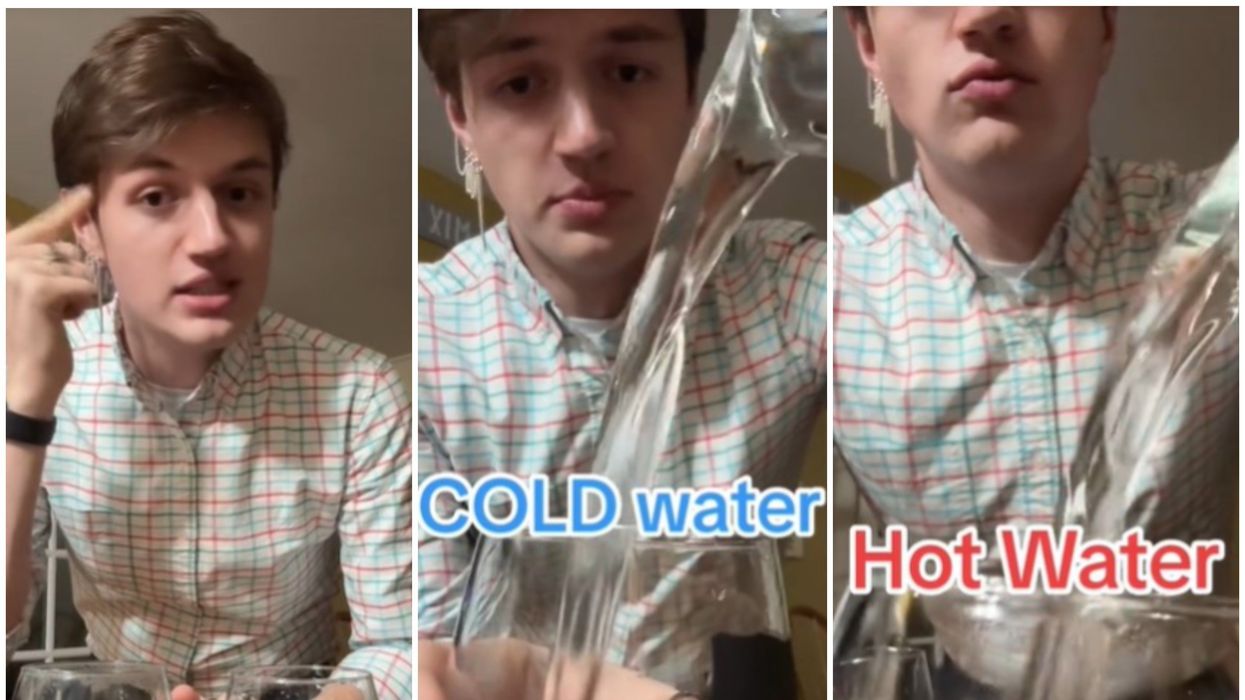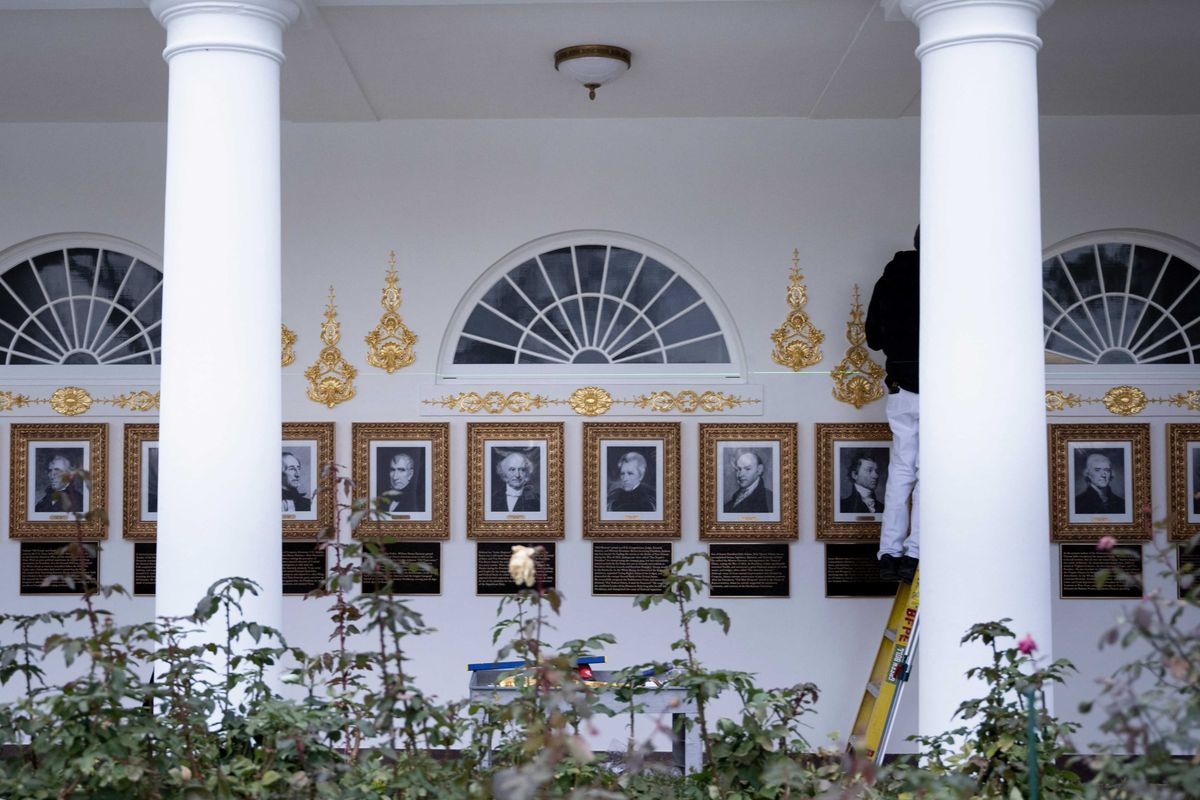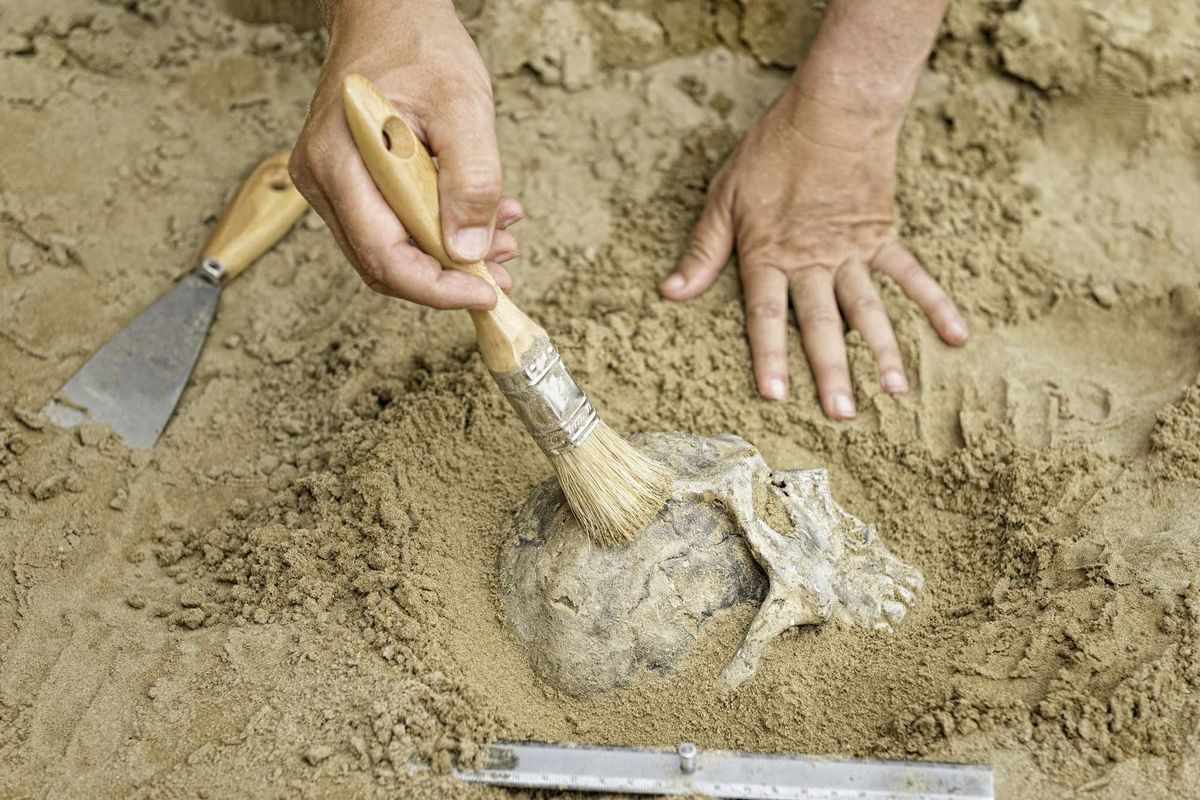Science & Tech
Sinead Butler
Dec 20, 2023

TikTok/curedeggyolk
A TikToker has gone viral after he conducted a science experiment to prove that humans can hear the difference between hot and cold water being poured.
"Every time I read this fact my mind is blown and we're gonna put [it] to the test right now," @curedeggyyolk said at the beginning of the video which has more than 26 million views.
In front of him he had two glasses of water, one of just boiled water, and the other containing cold water chilled with ice.
To involve the audience in the experiment, the TikToker challenged viewers to close their eyes to see if they could hear the difference between the sounds of the two pours and then rewatch the video to see if they guessed correctly.
@curedeggyolk i ❤️ science #water
Since sharing this video, there have been nearly 50,000 comments from viewers who have shared their answers and thoughts on what the pours sounded like.
One person said: "The hot one sounds wompy and the cold one sounds clinky if that makes sense."
"As a British person the first one sounded with you're making a cup of tea and the second a glass of juice," another person wrote.
Someone else added: "The kiki and bouba of hydrology."
"This may be weird but warm water sounds soft and cold water sounds hard," a fourth person commented.
So clearly we can all tell the difference between hot and cold water being poured - but what is the science behind this?
Well, the reason is down to the frequency of sound.
The resonance of the air, the vibration of the container and water as a whole are all sound sources.
Although hot and cold water both produce these same frequencies, both have different strengths, as per Small Screen Science.
We can see this but cold water is actually more viscous (thick) than hot water, which has influential factors such as the size of the water bubbles produced.
(The more viscous the solution the larger the bubbles and as a result a lower resonant frequency, the natural vibrating frequency of an object).
The vibration of the container and water is the dominant sound during a cold water pour while it's the resonance of the air when hot water is poured.
How to join the indy100's free WhatsApp channel
Sign up to our free Indy100 weekly newsletter
Have your say in our news democracy. Click the upvote icon at the top of the page to help raise this article through the indy100 rankings.
Top 100
The Conversation (0)













